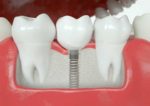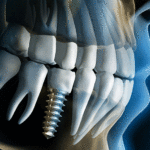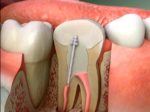Longevity of Teeth Implants: How Long Do They Last?

Dental implants are a popular option for those looking to replace missing or damaged teeth. They are typically made of titanium and surgically placed into the jawbone to serve as a replacement for the root of the missing tooth. While dental implants are known for their durability and strength, many people wonder how long they will last. The longevity of teeth implants is an important consideration for those considering the procedure, and it’s important to understand the factors that can impact their lifespan. Several factors can affect the longevity of dental implants, including the patient’s oral hygiene habits, the quality of the implant, and the skill of the dentist performing the procedure. Proper oral hygiene is essential for the longevity of teeth implants, as patients must maintain good oral health to prevent gum disease or infection. The quality of the implant itself can also play a role in its lifespan, as high-quality implants are more likely to withstand the daily wear and tear of chewing and speaking. Finally, the skill and experience of the dentist performing the procedure can also impact the longevity of the implant, as a well-placed and well-cared-for implant is more likely to last for many years.
Dental implants are artificial tooth roots that are surgically placed into the jawbone to support a replacement tooth, bridge, or denture. They are made of biocompatible materials such as titanium, which fuse with the jawbone to provide a stable and durable foundation for the prosthetic tooth. Dental implants are a popular and effective solution for people who have lost one or more teeth due to injury, decay, or other reasons. They offer a natural-looking and long-lasting alternative to dentures or bridges, and can improve the appearance, function, and overall health of the mouth. The success and longevity of dental implants depend on various factors such as the quality and quantity of the jawbone, the skill and experience of the dentist, and the patient’s oral hygiene and lifestyle habits.
Dental implants play a crucial role in restoring oral health as they not only replace missing teeth but also prevent further oral health complications. Implants provide stability and support to adjacent teeth and prevent them from shifting or becoming loose. They also help maintain the structural integrity of the jawbone by stimulating bone growth and preventing bone loss. Implants are a long-lasting solution that can significantly improve a patient’s quality of life by allowing them to eat, speak, and smile with confidence. With proper maintenance and care, dental implants can last a lifetime, making them a wise investment for anyone looking to restore their oral health and overall well-being.
The article \Longevity of Teeth Implants: How Long Do They Last?\ discusses the lifespan of dental implants, which are artificial teeth roots that are surgically placed into the jawbone to support a prosthetic tooth. The article explains that while the longevity of dental implants depends on various factors such as oral hygiene, smoking, and medical history, they can last up to 25 years or more with proper care. The article also provides information on the different types of dental implants, the implantation process, and the potential risks and complications associated with dental implant surgery. Overall, the article provides a comprehensive overview of dental implants and their lifespan, offering valuable insights for individuals considering this dental procedure.
Factors That Affect the Longevity of Dental Implants
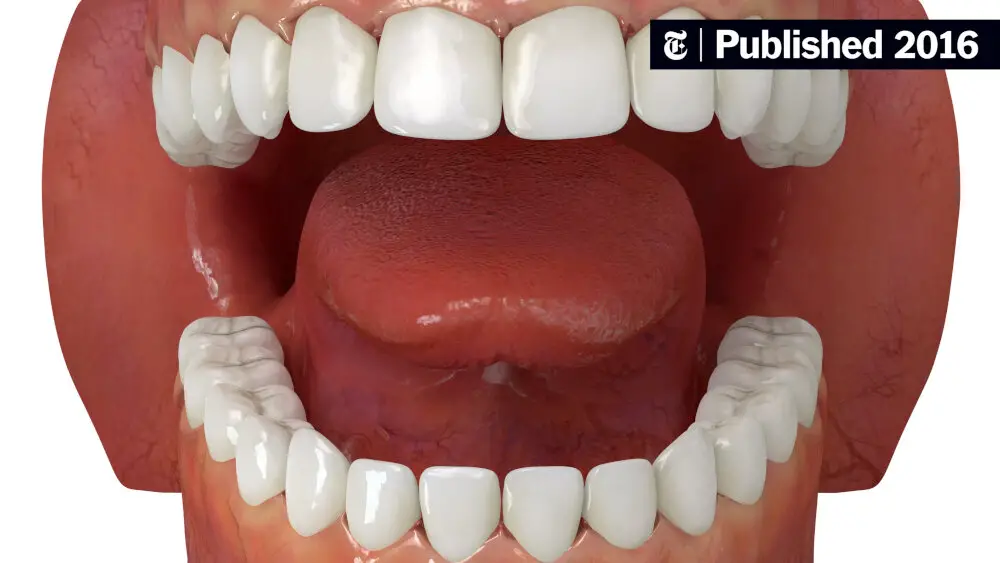
Dental implants are a popular and effective solution for replacing missing teeth, but their longevity can be affected by a variety of factors. One of the most important factors is proper oral hygiene. Regular brushing and flossing can help prevent the buildup of plaque and bacteria, which can lead to infection and inflammation around the implant. This can cause the implant to fail and require replacement. Patients with a history of gum disease may be more susceptible to implant failure and should be closely monitored by their dentist. Another factor that can affect the longevity of dental implants is the quality of the implant itself. High-quality implants are made from durable materials and are designed to withstand the forces of chewing and biting. Poorly made implants or those made from inferior materials may fail prematurely and require replacement. It is important to choose a reputable dentist who uses high-quality implants and has a track record of success with dental implant procedures. Patients should also follow their dentist’s post-operative instructions carefully to ensure proper healing and minimize the risk of complications.
The quality of materials used in dental implants is crucial to ensure the longevity of the prosthesis. Dental implants are typically made of titanium, which is biocompatible, durable, and corrosion-resistant. The implant’s surface plays a significant role in the osseointegration process, whereby the implant integrates with the surrounding bone. The surface is often coated with hydroxyapatite or other materials to enhance osseointegration. In addition to the implant, the abutment and crown materials also impact the longevity of the implant. High-quality materials such as zirconia or porcelain are often used for the crown and abutment to ensure stability, strength, and natural aesthetics. Using inferior materials can lead to premature failure of the implant, which can result in discomfort, infection, and additional expenses. Therefore, it is essential to use high-quality materials when placing dental implants to ensure their longevity.
The skill and experience of the dentist performing the implantation are critical factors that can affect the longevity of teeth implants. A qualified dentist with extensive knowledge and expertise in dental implantation can ensure that the procedure is carried out correctly and with precision. They are also able to choose the most appropriate implant type, size, and material, as well as the best placement angle, depth, and position, to ensure that the implant is stable, functional, and comfortable. A skilled dentist can also provide comprehensive pre- and post-operative care, such as thorough examination, diagnosis, treatment planning, and follow-up visits, to minimize the risk of complications and ensure the long-term success of the implant. Therefore, it is crucial to choose a competent and experienced dentist to perform teeth implantation, as it can significantly affect the durability and longevity of the implant.
A patient’s overall oral health and hygiene play a crucial role in the longevity of their dental implants. Poor oral hygiene can lead to the accumulation of plaque and bacteria, leading to gum disease and potential implant failure. It is necessary for patients to maintain a regular dental hygiene routine, including brushing twice a day, flossing daily, and visiting their dentist regularly for check-ups and cleanings. Additionally, a well-balanced diet and avoiding harmful habits such as smoking can also contribute to the success and longevity of dental implants. By prioritizing oral health and hygiene, patients can ensure their dental implants last for many years to come.
Lifestyle factors such as smoking and alcohol consumption can significantly affect the longevity of teeth implants. Tobacco use has been linked to a higher risk of implant failure due to the reduced blood flow to the gums and bones, which are crucial for implant integration. Additionally, alcohol consumption can lead to poor oral health, including gum disease, which can also increase the risk of implant failure. Therefore, it is important for individuals who have received dental implants to maintain a healthy lifestyle, including avoiding smoking and excessive alcohol consumption to ensure their implants last for as long as possible.
Several medical conditions can impact bone density, potentially affecting the longevity of dental implants. Osteoporosis, a condition characterized by weakened bones, is one such condition. Individuals with osteoporosis may have less bone density in their jawbone, making it more difficult for implants to fuse properly with the bone. Additionally, conditions that affect bone growth, such as Paget’s disease or bone cancer, can also impact the success of dental implants. It is important for individuals with these medical conditions to work closely with their healthcare providers and dental professionals to determine the best course of action for their dental health.
Average Lifespan of Dental Implants

Dental implants have revolutionized the dental industry in recent times, providing a permanent solution to missing teeth. They are a popular choice for people looking for a long-lasting replacement option for their teeth. The average lifespan of dental implants depends on various factors such as the patient’s oral hygiene, the implant’s quality, and their maintenance routine. Generally, dental implants can last for over 25 years, and sometimes even a lifetime with proper care. To ensure the longevity of dental implants, patients should maintain good oral hygiene. This involves brushing and flossing twice a day, using mouthwash, and attending regular dental check-ups. Patients should also avoid smoking and excessive alcohol consumption, which can contribute to implant failure. Additionally, patients should maintain a healthy diet and avoid foods that can cause damage to their implants, such as hard and sticky foods. By following these guidelines, patients can significantly extend the lifespan of their dental implants and enjoy a permanent solution to their missing teeth.
Studies and research findings have shown that dental implants have a high success rate and can last for many years, even decades, with proper care and maintenance. According to a systematic review and meta-analysis published in the Journal of Dental Research, the survival rate of dental implants after 10 years is approximately 90%. Factors such as patient health, oral hygiene, and implant placement location can affect the lifespan of dental implants. Additionally, advancements in implant technology and materials have led to even longer-lasting results. Overall, dental implants provide a durable and reliable solution for those seeking to replace missing teeth and improve their oral health and function.
The lifespan of dental implants is influenced by various factors, including the patient’s oral hygiene, medical history, and lifestyle. Good oral hygiene practices, such as regular brushing and flossing, can prevent the buildup of plaque and bacteria, which can lead to implant failure. Additionally, patients with certain medical conditions, such as diabetes, may be at a higher risk of implant failure due to compromised healing and immune function. Smoking and heavy alcohol consumption can also negatively impact implant longevity. The quality of the implant materials, the surgical technique used, and the type of implant placed can also play a role in how long the implant lasts. Regular dental check-ups and cleanings can help identify potential issues early on and prevent implant failure.
When it comes to tooth replacement options, dental implants are known for their longevity. Unlike dentures and bridges, which may need to be replaced every 5-10 years, dental implants can last for several decades with proper care and maintenance. This is because dental implants are designed to fuse with the jawbone, creating a strong and durable foundation for the replacement tooth. Additionally, dental implants are made from high-quality materials such as titanium, which is known for its strength and durability. While the initial cost of dental implants may be higher than other tooth replacement options, their long lifespan can make them a cost-effective choice in the long run.
Maintaining the Longevity of Dental Implants
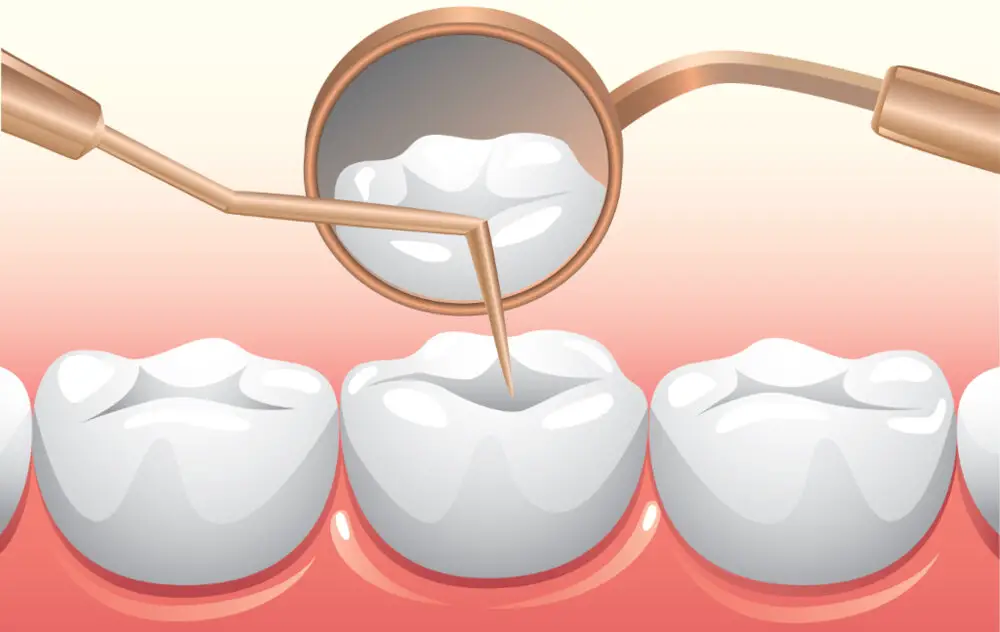
Dental implants are a popular and effective solution for replacing missing teeth. They are designed to last for many years, but it is important to take proper care of them to ensure their longevity. Good oral hygiene is essential for maintaining the health of your dental implants. Brush twice a day with a soft-bristled toothbrush and fluoride toothpaste. Floss daily to remove food particles and bacteria from between your teeth and around the implant. Consider using an interdental brush or Waterpik to clean hard-to-reach areas. Regular dental checkups and cleanings are also important for ensuring the health of your implants. Your dentist can detect and treat any issues early on, before they become more serious and potentially lead to implant failure. Another important factor in maintaining the longevity of dental implants is avoiding habits that can damage them. This includes avoiding hard or crunchy foods that can put pressure on the implant or cause it to chip or break. Quitting smoking is also crucial, as smoking can weaken the bone structure around the implant and increase the risk of implant failure. If you grind your teeth, talk to your dentist about getting a custom nightguard to protect your implants while you sleep. By taking good care of your dental implants and avoiding habits that can damage them, you can ensure that they last for many years and provide you with a beautiful, functional smile.
Proper oral hygiene plays a crucial role in maintaining the longevity of dental implants. Dental implants are a long-term investment and require careful maintenance to ensure their longevity. Neglecting oral hygiene can lead to bacterial growth, gum disease, and even implant failure. Daily brushing and flossing are essential to remove plaque and bacteria that can cause implant-related problems. Regular dental check-ups and professional cleanings are also imperative to maintain the health of the surrounding teeth and gums. A commitment to excellent oral hygiene is essential to ensure the longevity of dental implants, which can last for many years with proper care.
Regular dental checkups and cleanings are crucial for maintaining the longevity of teeth implants. These routine appointments allow the dentist to monitor the condition of the implants and identify any potential issues before they become major problems. Professional cleanings remove plaque and tartar buildup that can cause gum disease and compromise the stability of the implant. In addition, regular checkups provide an opportunity for patients to ask questions and receive guidance on proper oral hygiene practices. By prioritizing regular dental visits, patients can help ensure that their teeth implants last for many years to come.
Dental implants are widely regarded as a long-lasting solution for missing teeth, but their longevity depends on several factors, including lifestyle choices. To ensure the longevity of dental implants, individuals should avoid certain lifestyle factors that can negatively impact their oral health. These include smoking, excessive alcohol consumption, and poor oral hygiene practices. Smoking can cause implant failure by reducing blood flow to the gums and bone, while excessive alcohol consumption can weaken bones and interfere with the healing process. Poor oral hygiene practices can also lead to implant failure by allowing harmful bacteria to accumulate around the implant. Adopting a healthy lifestyle, maintaining good oral hygiene habits, and scheduling regular dental check-ups can help ensure the longevity of dental implants.
Dental implants are a widely accepted and successful solution for replacing missing teeth. However, complications can arise that may impact the longevity of the implant. One of the most common complications is peri-implantitis, which is an inflammatory process that affects the soft and hard tissues surrounding the implant. This can lead to bone loss and implant failure. Other complications include implant fracture, screw loosening, and implant misalignment. Additionally, poor oral hygiene, smoking, and certain medical conditions can increase the risk of implant failure. Therefore, it is crucial to maintain good oral hygiene and follow up with regular dental check-ups to detect and address any potential problems early on to ensure the longevity of dental implants.
Several factors can affect the longevity of dental implants, including the patient’s overall health, oral hygiene, and lifestyle habits such as smoking. The quality of the implant itself, the surgical procedure, and the materials used for the restoration also play a significant role in the implant’s lifespan. Additionally, regular dental visits and maintenance, including professional cleanings and checkups, can help prevent complications and ensure the implant’s longevity. Patients should also follow their dentist’s instructions regarding proper care and maintenance of their implants, which can include avoiding hard or sticky foods, using an antibacterial mouthwash, and regularly brushing and flossing. By taking these factors into consideration and following proper care guidelines, patients can enjoy the benefits of dental implants for many years to come.
Proper oral hygiene and regular dental checkups are crucial to ensure the longevity of teeth implants. Neglecting to maintain good oral hygiene can lead to the formation of bacteria and plaque buildup on the implant, which can cause gum disease and implant failure. Regular dental checkups allow dentists to monitor the condition of the implant and detect any potential problems early on. Additionally, professional cleanings can help eliminate any hard-to-reach plaque and ensure the implant remains clean and healthy. Overall, investing in proper oral care and regular checkups is essential to ensure the longevity of teeth implants and maintain a healthy, functional smile for years to come.
Dental implants have become increasingly popular over the years as a solution for missing or damaged teeth. With proper care and maintenance, dental implants can last for many years, sometimes even a lifetime. However, it’s important to note that the lifespan of dental implants can vary depending on a variety of factors such as the patient’s oral hygiene habits, overall health, and the quality of the implant itself. Despite this, dental implants remain a reliable and effective option for restoring oral health and improving overall quality of life. It’s essential to consult with a qualified dental professional to determine if dental implants are the right choice for your individual needs and to ensure their proper maintenance for the longest lifespan possible.
Conclusion

In conclusion, the longevity of teeth implants is largely dependent on various factors such as the patient’s oral hygiene, lifestyle habits, and the expertise of the dentist placing the implant. While dental implants are designed to last a lifetime, proper care and maintenance are essential to ensure their longevity. Patients must adhere to a strict oral hygiene routine, attend regular dental check-ups, and avoid habits such as smoking and excessive alcohol consumption that may compromise the implant’s integrity. With proper care, dental implants can last for decades, providing patients with a natural-looking, comfortable, and durable solution for missing teeth. However, it is crucial to consult with an experienced dentist to determine the best course of action and to ensure the success and longevity of dental implants.

